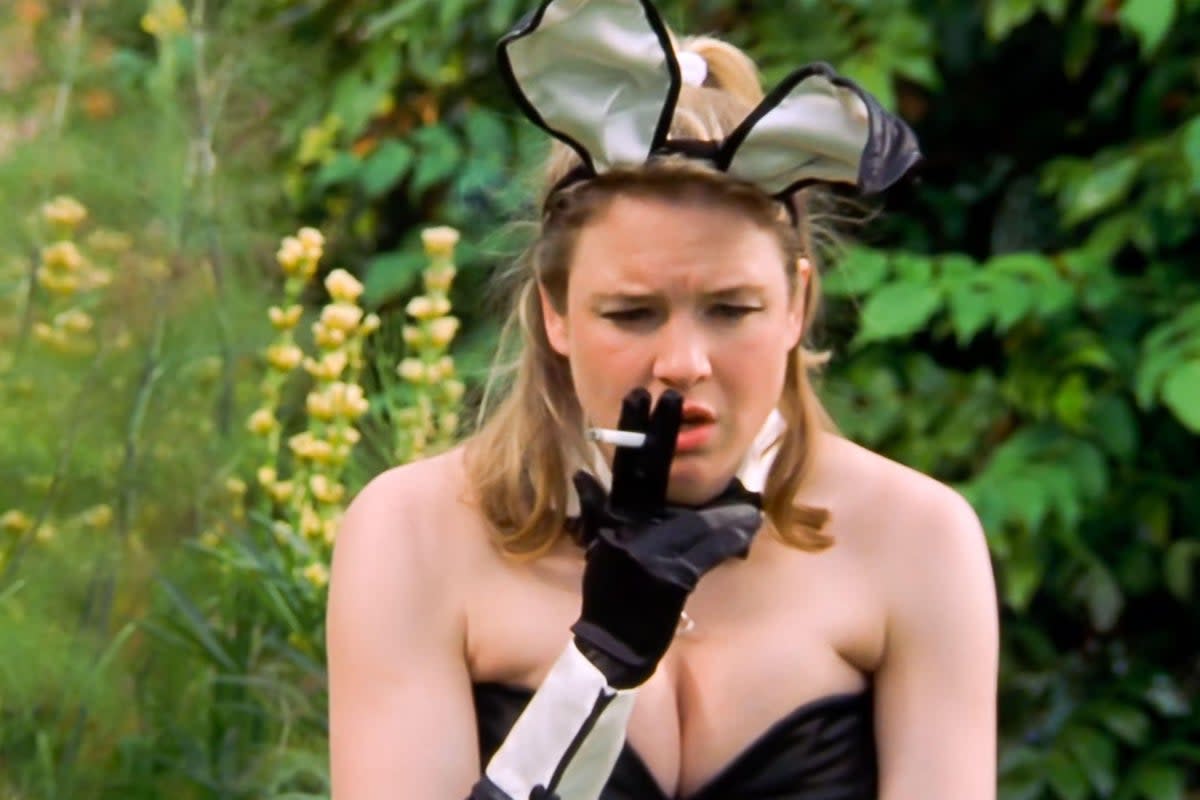Voices: Neurotic, overwhelmed and awkward: We need Bridget Jones more than ever

I first read Bridget Jones in this very publication when I was in my early teens in the mid-90s. I remember being struck by the candid honesty of this woman. She seemed, well, normal. It was the first time I’d read anything like it, it was honest, exposing and very funny. Helen Fielding – Jones’ brilliant creator – had struck gold.
Then along came the films... and what a joy they were! Renée Zellweger was the perfect casting as Bridget in Bridget Jones’ Diary, released in 2001. Jones was a young professional living a chaotic life as a single woman in her thirties in London. There were the inappropriate choices in men and boozy nights, but she was always supported by a tight group of friends, her slightly outdated (but loving) parents and a flat that I – at the time, also a single woman in London – would have killed to live in.
I have so much nostalgia for the noughties: we were in the halcyon days of New Labour, the nation was still humming D:Ream’s classic Things Will Only Get Better (with Brian Cox more famed for his keyboard skills than his astronomical prowess). Bridget Jones was our role model. She summed up a point in time that it now feels impossible to get back.
Fast forward 23 years and there are now three films in the franchise, with the fourth instalment, Bridget Jones: Mad About The Boy, recently announced. But in an era of post-pandemic chaos, cost of living crisis and an imminent election – not to mention war in the Middle East and in Europe – how relevant is Bridget Jones to a Gen Z Britain after Brexit?
Things have changed a lot since the first release – that’s putting it mildly. So I can’t help but wonder if Bridget will too. For one, we can all universally accept that Bridget was not fat. Her obsession with her weight was always shocking to me, especially as she weighed the same as I did when I was 14 (she was 32). She weighed a tiny 9st 3lbs (129lbs) for goodness sake – and was determined to lose a further 20 lbs. And then there’s the constant commenting on her weight by anyone who wanted to share their opinion. In fact, much of the film is spent dwelling on Bridget trying to alter herself.
It may seem shocking to look back on – but this was the landscape of the culture and media of the early noughties. Lads mags rating women’s sexiness, the constant need to be “thin” and appropriately proportioned to the standards of heterosexual men. It all feels like a bit of a nightmare, looking back, but I wonder if things have really changed that much today?
After all, we might be more used to calling out those who “fat-shame”, but the use of fillers and Botox is rising at an alarming rate and there is an increasing identikit “look” for young women. It may appear more veiled and discreet, but the notion of “perfection” is permeating strongly among Gen Z. That their lives have to be “clean”, “intentional” and highly filtered. The rise of AI and apps such Midjourney AI will only serve to blur the lines further between reality and the altered state.
Many could argue that Bridget Jones is outdated; a relic best left where she came from. But I would disagree – I think we need her now more than ever. The joy of Bridget Jones is that she is very much like all real women. Or, certainly the ones that I’m lucky enough to call friends.
She is witty, loving, loyal and committed. Who among us isn’t a bit neurotic, definitely overwhelmed and awkward at times? That’s the reality of life – not the polished veneer that we are pushed via Instagram on a daily basis.
Spoiler alert: in the fourth instalment, Bridget is now a widow in her early 50s with twin children, grappling with single parenting. We don’t know how much the film will be connected to the book, but I, for one, hope she takes a young lover and enjoys herself in any which way she likes.
She should feel empowered and excited by this latest chapter of her life. Ageing is a privilege: one none of us should ever take for granted. I am a firm believer thatwe should all live life to the full, whatever our age. Role models don’t need to be perfect, they don’t need to be “smug marrieds” or “crushing” their career – they come in all different shapes and sizes.
Bridget Jones is a reminder to us that life is made up of a myriad of experiences: some joyous and some utterly heartbreaking. Life is not smooth and glossy – it can be raw, devastating but utterly beautiful too. And, if we weather it all with love and humour, much like Bridget, then perhaps things will be just that little bit brighter.


